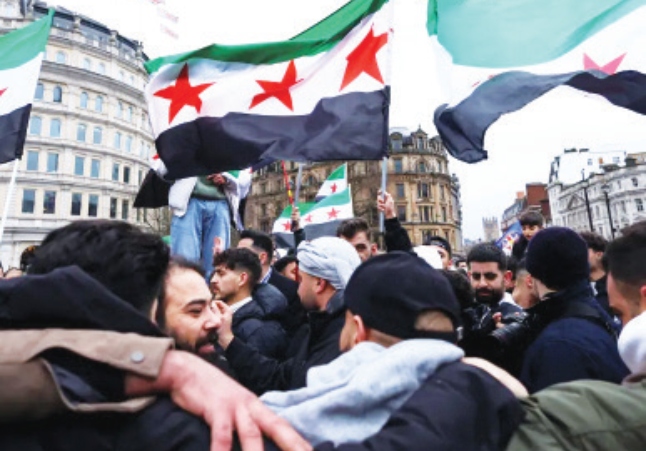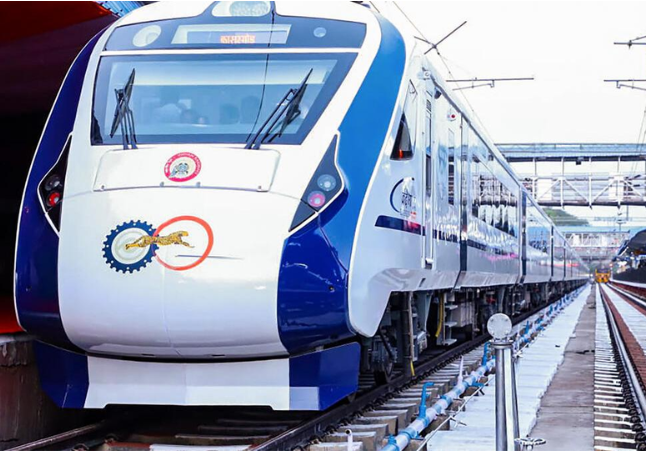For Israel and the US, the change represents an opportunity to partition Syria again. The country is already divided into de facto blocs. Israel would, in its national interest, prefer to make this de jure
If you want to know why Israel carpet-bombed the Syrian defence infrastructure now, you must understand why Netanyahu did not touch Syria while Bashar al-Assad was in power. Assad did not represent a threat. He kept his father’s commitment to preserve the status quo reached after the 1973 war for half-a-century. His successors are unlikely to honour that pact, no matter what they might say about the need for peace during a period of intense vulnerability. The departure of Assad does not mean that their troops, or the Syrian people, do not want the Golan Heights back in their country. Netanyahu has said that the Golan, seized in 1967, is part of Israel for eternity. Eternity has a short lifetime in the deserts of Abraham.
For Israel and the US, the change represents an opportunity to partition Syria again. The country is already divided into de facto blocs. Israel would, in its national interest, prefer to make this de jure.
Turkey’s Recep Tayyip Erdogan has been more circumspect. While the future is too volatile for rational analysis, his three immediate objectives are to keep Syria united, eliminate Kurdish terrorists based in the north, and enable the return of Syrian refugees to Adana (famous for its delicate kebab) and dozens of other cities.
Diverting attention
Ahmed Al-Sharaa has begun to divert his past from attention, by erasing aliases. As Abu Mohammed al-Jolani, he was a comrade of Abu Bakr al-Baghdadi, the ‘quiet scholar’ who flew the black-and-white Islamic State flag over Mosul. On December 9, the BBC website carried extracts from an interview that Jolani gave to PBS in 2021; so he was not unknown to American state-funded media. The BBC story was written by Mina al-Lami, the corporation’s ‘Jihadist Media Specialist’. How did PBS get the interview?
Sharaa was born in 1982 in Saudi Arabia where his father was an oil engineer till 1989 when the family returned to Damascus. Clearly, events were inducing him towards radicalisation. The Iraq war seems to have been a point of departure; he was in an American prison, Camp Bucca, in 2005. In 2011 Baghdadi sent Jolani to Syria to lead Al-Nusra Front; within a year it became the most powerful Islamist army in Syria but Assad survived the ‘Arab Spring’ and its various hidden derivatives. In 2013 Sharaa split with Baghdadi, who dreamt of a contiguous Caliphate, and made Nusra the Syrian branch of the less dominating Al-Qaeda.
Biden and Netanyahu claimed credit for the fall of the Assad family. Netanyahu did not touch Syria while Bashar al-Assad was in power. Assad kept his father’s commitment to preserve the status quo
Washington campaigned in media and on battlefield against Nusra as its principal enemy in Syria. Jolani won a major victory by taking over the province of Idlib in 2015, brushed aside Al-Qaeda the following year, regrouped as Jabhat Fatal al-Shaam and then Hayat Tahrir al-Sham (HTS). He turned the focus of his movement on a national objective, Damascus, rather than a confused international purpose. HTS crushed Al-Qaeda affiliates in Syria by 2020. (Covid does not affect war zones. The casualty rate is immaterial.)
In 2021 Jolani welcomed the return of Taliban to Afghanistan. In a surprise to those who like stereotypes, he encouraged a conventional contemporary economy. Those who took a harder line than him protested in December 2023 when there was festive and glitzy opening of a mall. Idlib had a functioning government for its four million people, with a Prime Minister and a Cabinet. And, of course, a Council to ensure obedience to Sharia.
A picture taken in 2022 shows him looking looking at a painting of the Umayyad mosque at a culture fair in Idlib. Two years later, he was holding a press conference at the mosque. That day the Syrian national football team switched the colour of its jersey to green.
Washington feelers
Jolani and HTS remain, at the moment of writing, on the terrorist list of the three Uniteds: the United Nations, the United States and the United Kingdom. America has a $10 million reward for Jolani, so now bounty hunters know where to find their quarry. They need to hurry. Washington has sent feelers containing conditions for recognition. The best bet for America is that Sharaa née Jolani will become merely another dictator with a benevolent smile, keep religiosity to minimal requirements, provide a government which slowly acquires acceptance, disrupt the Shia arc from Iran to Hezbollah and its supply lines, control the temperature of confrontation with Israel without risking a flare-up.
Russia has already negotiated the continuation of its naval base on the Mediterranean, and let life and death follow some predestined course in a land of war. Israel carefully avoided any Russian target when its air force attacked Latakia. Turkey wants a dilution of terrorism and insurgency in its south.
The region would come to terms with a Sunni Bashar al-Assad, with Iran left to find a new algebra after the loss of an Alawite Shia ally. The rest of our unstable world has other things to worry about.
Can a leopard change its spots? Who knows? Give a leopard four walls and it becomes a sleek cat sipping honeyed milk from a mahogany desk. Time, we are told, will tell. Perhaps. Optimism is not advised. Time is as restless as it is unpredictable.
There will be more news from Aleppo. And from Babylon, Lebanon, Hebron, Golan, Ashkelon, Aden, Ankara, Amman, Gaza, Cairo. And if we are not careful, Grozny. And Jerusalem, holy to those who believe that the dead pass through its gates to heaven and hell.
So much faith. So little peace.







